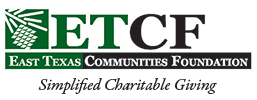I was in the fourth grade when Jimmy Carter faced off against Gerald Ford in the presidential election of 1976. That election was the first presidential election I had any chance of understanding, and my teacher did a good job trying to use the opportunity to help a room full of eight- and nine-year-olds comprehend the election process. As we studied the Constitution and assigned various roles to students as electoral college delegates and candidates, I somehow ended up with the role of Jimmy Carter. I vaguely recall having to learn about him and make a speech to try to earn the support of my classmate delegates. We followed the election through the electoral process, with everyone casting their assigned electoral college votes and when the dust settled, I was elected president. Having become invested in Mr. Carter through my classroom experience, I followed his presidency as best I could for my age. He left office long before I had any real grasp of the role of the president or politics.
The announcement of President Carter’s passing at age 100 has understandably evoked many news reports and personal reflections from many notable dignitaries about his life, his service as President, and his long legacy since he left office over forty-three years ago in 1981. Hardly a story has been told in the past few days without referencing his work with Habitat for Humanity. Many of the stories I have seen include videos or photos of him on a home build site, in a hard hat, swinging a hammer. Regardless of how people are scoring his effectiveness as the 39th President of the United States, it seems unanimous that he is greatly respected for his work building homes to provide affordable housing for families. What a great legacy.
You may be wondering how President Carter became so closely connected to Habitat for Humanity. The answer is obvious if you know a little about the history of the organization. In 1968 Millard and Linda Fuller established a new partnership housing ministry at a Christian community known as Koinonia Farm near Americus, Georgia, which is ten miles from the Carter’s hometown of Plains, Georgia. After testing their program in America, and in Africa during the early 1970’s, the Fullers founded Habitat for Humanity as a new, independent, non-profit organization in America in 1976. From its beginning, Habitat for Humanity has engaged future homeowners in the personal financial investment and physical construction of modest homes, built at no-profit, and financed with no-interest loans from a build fund provided by donors and mortgage payments from Habitat homeowners. Living ten miles away from the new charity and deeply involved in the activities of the local Christian community, the Carters naturally knew about the ministry and became involved in 1984, just a few years after the end of Carter’s presidency.
Over the years, Habitat for Humanity has expanded its program of building new homes to include disaster response and renovating or repairing homes to make them livable. The 2024 annual report for Habitat for Humanity notes that the organization has built or improved homes for 62 million people worldwide since 1976, including numerous homes, project and impacted families in East Texas. The Carters have no-doubt played a role in that success with their decades of faithful support. Very few of us, in fact only 45 individuals to-date, will have the opportunity to serve as President of the United States, but we all have the opportunity to establish our charitable legacy. Your charitable legacy is not constrained by your financial resources, but can also include your dedicated volunteer service, your advocacy for an important cause, or your influence. East Texas Communities Foundation is grateful that many families throughout our region have entrusted their legacy to us in the form of permanent endowments. Some of these endowments support annual scholarships for students, often honoring or memorializing a loved one; while other endowments support specifically named nonprofit organizations that are meaningful to the donor or their family. Still, other endowments provide annual grants to meet the ever-changing needs of various East Texas Communities. If the passing of President Carter, or the nostalgia and excitement of ringing in the new year have you thinking about your charitable legacy, perhaps having a conversation about the possibilities with your family, your friends, your trusted advisors, the leadership of your favorite charity, or a member of our staff could be your next best opportunity to Give Well.


Recent Comments